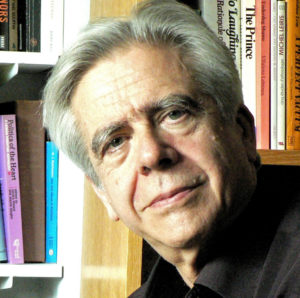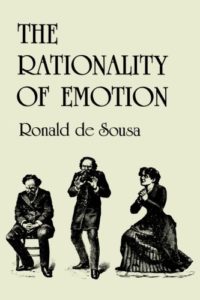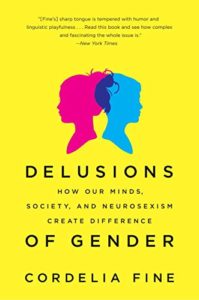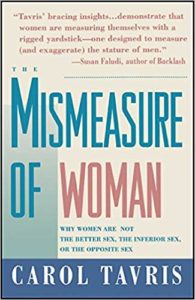
Ronald de Sousa, Department of Philosophy, University of Toronto
An interview with Carolyn Price (August 2018)
Ronald (Ronnie) de Sousa is an Emeritus Professor at the Department of Philosophy of the University of Toronto, which he joined in 1966. He is a past president of the Canadian Philosophical Society and a Fellow of the Royal Society of Canada. He is well known for his work on the philosophy of emotion: his book The Rationality of Emotion, published in 1987, offered a ground-breaking alternative to the judgement and belief-based theories of emotion and remains an important point of reference today. In this book, he defended a view of emotion as both functional and rational, and urged that emotion must be understood in its own terms, not reduced to other psychological categories. Since then, he has published on evolution and rationality, on emotional truth, and on love.

What was your childhood like, where did you grow up, what did your parents do, what was your family like? What were those early years like for you and your family?
My mother was a native of Geneva, Switzerland, now the home of CISA , Geneva’s Empire of the Emotions. As dictated by the custom of the day, she wasted her considerable intellectual talents being a “housewife”. My father, whose parents were Portuguese, was born in Plymouth, which made him English. I was born in Geneva. This also made me English – proving that different causes can have the same effect. My father worked for ALCAN, the Aluminium Co. of Canada. (It is another coincidence that I settled in Canada.) I was the third of four children. But I didn’t see my siblings all that much, because I spent most of my time away at boarding schools. I was sent to the first such school at the age of eight. Alcan transferred my father to London, and I was sent ahead to the “prep school” affiliated with a Jesuit public school (in the English sense, which is the opposite of the American). Thus I learned English by immersion early enough to become a native speaker, a feat easily achieved by anyone under 10 years old or so, but almost impossible after the age of 12. I was happy enough there, despite the regime of relatively mild corporal punishment. It worked like this. Upon committing an infraction of the school rules (collected in a tiny blue booklet, and of which the last was: “A breach of common sense is a breach of the School Rules”), one was mandated to request, at one’s convenience, “three ferulas” from the Father Superior. You knocked at his big oak door, and when summoned, said: “Please Father may I have three ferulas.” The Father Superior would instruct you to present the palms of your hands, at which his practised aim insured that the large thick leather strap he extracted from a drawer produced a satisfying thwack. You then thanked the Father Superior and departed, and on that one occasion, there was tolerance for hands in your pocket.
About half way through the first trimester, in my obligatory weekly letter home, I explained that the Catholic Church was the only authentic Christian institution. I had the proof, which I remember vividly: The Church had been founded by Jesus Christ “upon this rock, Peter”; and the popes were simply the successors of Peter. Q.E.D. My mother was not religious, but she had osmotically assimilated opinions of Jesuits still widespread in the city of Calvin. As a result my parents withdrew me from that school at the end of term. My Latin never recovered. More relocations followed, which ultimately brought me to the International School of Geneva. There, on the basis of an essay I had written about something in Montaigne, my teacher informed me that I was a philosopher. It followed that I must switch from the Swiss to the French curriculum, which included a year of philosophy. Or at any rate something called “Philosophie”.
Thus it came to be that my school leaving certificate was a French Baccalauréat, and that it never occurred to me to doubt my philosophical vocation. The French curriculum did not, however, equip me with the level of Latin and Greek expected of students in Literae Humaniores, or “Greats”, as it is known. So I did a three year degree, in which the study of philosophy and ancient history was preceded by only two terms rather than two years of strictly classical studies. At the end of which it appeared that the next thing one did was to go and spend a year in America. I did so, without ever actually deciding to do so, and soon discovered that I was enrolled in something called a PhD program which, to my astonishment, would somehow be completely free of charge. In those mythical days long ago, there were more jobs than applicants. One of my teachers, the wonderful Plato scholar Gregory Vlastos, wrote to a couple of friends in Canada, and that is how I found myself in Toronto. So again, there didn’t seem to be anything to decide.
Ever since I have wondered: would I have made it on my own merits?

You studied for your PhD at Princeton, and worked there for a year. What was your experience like? What was your thesis topic and what did you learn from writing it?
Princeton graduate students were somewhat looked down on by Princeton undergraduates as socially inferior grinds. (I’m not sure there were nerds yet). We were quarantined in the Graduate College, a Neo Gothic structure about half a mile from campus, where we wore academic gowns to dinner. But the philosophy department was very intense. Seminars were loud and combative, and, of course, there were no women! An astounding thing to recall. (But a fine thing indeed, that we now do find that astounding.) We learned about the philosophy of science from Carl Hempel ; our Greek philosophy from Gregory Vlastos; our logic and philosophy of mathematics from Paul Benacerraf (whose sole comment on my first paper was so withering that I chose him to be my thesis supervisor). Our philosophy of mind came from Stuart Hampshire and from visiting stints by Bernard Williams and Wilfrid Sellars, whom Richard Rorty got us to study intensively. We would interrogate Sellars at weekly lunches.
My thesis was in the philosophy of language which at that time resonated mightily with the clamour of the Chomskyan revolution, as well as Quine’s provocative doctrine about the indeterminacy of radical translation. It was also the time when Saul Kripke revolutionized the theory of reference, and would stop one in the hallway to pose deceptively simple little paradoxes that kept us talking for days. He taught us, for example, why it was logically and semantically possible that the Iliad and the Odyssey were not composed by Homer, but by another author of the same name. This was at the height of the movement in philosophy famously described by Richard Rorty in an anthology he edited as “the linguistic turn.” This fitted in quite well with the influence of my undergraduate training at Oxford, which was still dominated by Gilbert Ryle, although in my case his influence was very much tempered by the far more rigourous intellectual example of David Wiggins. I still thought that the study of language should be the central tool of philosophy. In those days, the program still required comprehensive examinations. Those provided a wonderful if evanescent illusion of understanding how every aspect of philosophy related to every other. (An epiphany of the sort that nowadays, in the absence of truly comprehensive graduate exams, are afforded only with chemical aids.)

You first began working at Toronto in 1966. What was your experience there? Who were your close colleagues? Where there particular people or publications that inspired you as you were starting out?
After completing my PhD, I assumed I would continue thinking and writing about language. But unlike today’s new PhD’s who are compelled by the job market to mine their dissertations for publications to adorn their CV, I experienced no immediate pressure to publish. (Just one chapter of my thesis was published before the thesis was complete, and five years elapsed before I published anything else). One day I got intrigued by a footnote in a colleague’s article about Chisholm on belief. The meditations sparked by that footnote led to five years of work on the relationship between on/off assent and Bayesian degrees of confidence. I still think this was one of my best papers, and it was made possible by what I experienced as a wonderful period of freedom. There were a number of young colleagues who had been hired within a year or two of me, including such luminaries as David Gauthier and Wayne Sumner (who was also in my cohort at Princeton but finished one year ahead of me.) We “young Turks” formed a little seminar we called the Vicious Circle, in which each in turn would present work in progress for others to shred.
When did you first turn your attention to emotion? What was it that drew you to it?
In those first years, apart from the paper on belief, I wrote about the difference between the good and the true; about Freud; about self-deception; and about Thomas Szasz and the anti-psychiatry movement. As I have always taken the view that philosophy is an intellectual poaching license, I enjoyed pretty much every aspect of analytic philosophy. (My French background did not, alas, ever bestow on me the gift of deciphering the opaque vaticinations of French philosophy after Sartre). It dawned on me that the topic of emotion would provide a pretense of specialization while inviting me to think, like a true dilettante, about just about everything: mind, language, epistemology, ethics, aesthetics, metaphysics, and even life. So that’s when I started thinking about emotions. I wrote an article on “The Rationality of Emotions”, which was published in 1979. The central idea was that emotions have a narrative structure and tend to rehearse “paradigm scenarios” learned in early life. This remained the core idea of The Rationality of Emotion, much of which was written during a blissful sabbatical year spent at the University of British Columbia in 1984. The book was published in 1987 by Bradford Books, a wonderful small press which was in the process of being absorbed by MIT.
Not many philosophers were paying attention to emotion at that point. How was your work received? Were there other philosophers/ researchers you were able to discuss your views with?
I met Bob Solomon pretty early on, before his book came out, and I had been in touch with Amélie Rorty ever since my Princeton days when she was married to Dick Rorty. From that time I treasured the memory of many wonderful Sunday brunch conversations in their house and I was very sorry they split up, as I was very fond of both of them. Dick Rorty veered off into styles of philosophy that were less congenial to my own, and athough both remained friends I felt more philosophical kinship with Amélie and kept up — and continue to keep up — with her much more consistently over the years. It was she who first introduced me to ISRE, which I didn’t join until a two or three years after it was founded. But my first attendance at one of their meetings — I remember it was at Rutgers in New Brunswick, but I don’t recall the year—was a wonderful experience, because the idea of interdisciplinary research was such a compelling one. Thereafter the ISRE meetings — hearing from so many great and forceful personalities, Ekman, Panksepp, William Miller, Campos, Ed Diener, and many others — were always a highlight in my academic year.
Your book The Rationality of Emotion (1989) has been a reference point for philosophers working in emotion ever since it was published, and has inspired a great deal of further research. What do you think were the most influential ideas in the book? Is there anything you think was overlooked? Is there anything you’d change?
 The Rationality of Emotions explored two simple ideas, with a few corollaries. First, emotions play too important a role in our life not to be linked to some biological function. Second, whatever function that might be affects our capacity to make intelligent decisions in complex situations, not just to respond reflexively to threats or affordances of daily life. Emotions, I suggested, solve the “Frame Problem”, which is essentially the problem of knowing what to ignore without wasting time examining every possible consequence of a decision, to make sure it can be ignored as irrelevant. Emotions do this by controlling the salience of information, lines of inquiry, and live practical options. They narrow the focus of attention to ranges of factors that we have “learned”, on both the evolutionary and the individual scale, are the most likely to be relevant in any given situation. Emotions therefore contribute to our capacity for rational decision, even though, as is all too obvious, they sometimes distort judgement and interfere with rational deliberation. Emotions can also be said to be “rational” – contrasting not with “irrational” but with “a-rational” – in a second sense, more or less corresponding to what we mean when we describe someone as “reasonable” or “unreasonable”.
The Rationality of Emotions explored two simple ideas, with a few corollaries. First, emotions play too important a role in our life not to be linked to some biological function. Second, whatever function that might be affects our capacity to make intelligent decisions in complex situations, not just to respond reflexively to threats or affordances of daily life. Emotions, I suggested, solve the “Frame Problem”, which is essentially the problem of knowing what to ignore without wasting time examining every possible consequence of a decision, to make sure it can be ignored as irrelevant. Emotions do this by controlling the salience of information, lines of inquiry, and live practical options. They narrow the focus of attention to ranges of factors that we have “learned”, on both the evolutionary and the individual scale, are the most likely to be relevant in any given situation. Emotions therefore contribute to our capacity for rational decision, even though, as is all too obvious, they sometimes distort judgement and interfere with rational deliberation. Emotions can also be said to be “rational” – contrasting not with “irrational” but with “a-rational” – in a second sense, more or less corresponding to what we mean when we describe someone as “reasonable” or “unreasonable”.
Although the book is quite frequently cited, I’m not sure it has been particularly influential. One idea that has been picked up here and there is the idea of “paradigm scenarios”. Probably the reason this has been picked up his that it was not particularly original in the first place. The core idea goes back to Freud, if not to Aristotle. On the therapeutic side of psychology it has often, if not always, been regarded as obvious that emotional patterns first learned in early childhood can be difficult to shake – both for good and for ill. Several philosophers, notably Martha Nussbaum, have emphasized the role of art and literature in getting us to refine and modify our more primitive patterns of emotional response and the attitudes that go with them. But the idea was, and remains, underdeveloped. I myself explored some of the problems it raises myself in a paper on “Emotions, Education and Time” published in Metaphilosophy in 1990, which Google scholar tells me has been cited a few times, but of which I have never actually seen a discussion. Paradigm scenarios raise questions about flexibility in personality and emotional temperament which are vital to educational practice: How is it possible to control one’s emotions, to mature emotionally? Much also remains to be done to understand how similarity among situations, triggering similar responses, is implemented in the brain. Recently I have been very interested in the extent to which we can “re-gestalt” situations in such a way as to refashion our emotional responses. This is a domain in which emotional constructionists have much to teach us. We need to be aware of the extent to which we ascribe emotions, not only to others but even to ourselves, in the light of half conscious assumptions about how we are supposed to respond. Our emotional repertoire is partly dependent on our ideology.
Not many philosophers were paying attention to emotion at that point. How was your work received? Were there other philosophers/ researchers you were able to discuss your views with?
There had actually been important work by philosophers on emotions in the preceding decades. Anthony Kenny’s Action, Emotion, and Will, first published in 1963, incorporated important insights from mediaeval conceptions of intentionality. It was very influential, on me and others. Other important philosophers, including several late and current members of ISRE, had written on related themes, notably Arnold Isenberg, Adam Morton, Patricia Greenspan, Richard Wollheim, Gabriele Taylor, Annette Baier, Jerome Neu, Lawrence Blum, and, most importantly, Amélie Oxenberg Rorty. Rorty collected some of these philosophers’ works, together with representative extracts from psychologists Paul Ekman, Paul MacLean, and James Averill, in her important 1980 anthology, Explaining Emotions. Robert Solomon’s book on The Passions: Emotions and the Meaning of Life had first come out in 1976. This was something of a provocation, offering a doubly outrageous view. His first proposition was that emotions were judgements – a special category of evaluative judgments, to be sure, but still judgments. The second proposition, on the face of it incompatible with the first, was that emotions were chosen: that we were responsible for them as for any intentional action. This was a radical existentialist position that flouted philosophical orthodoxy. And although Solomon continued to describe himself as an existentialist to the end of his life, his position later became much more nuanced. He set a wonderful example to other philosophers by being open to empirical findings in neighbouring disciplines—an attitude which I am glad to say is now pretty much universeal among philosophers working on emotions.
In short, it would be an exaggeration to claim that my book started anything, but I think I was extremely lucky to have become interested in emotions when the number of people working in that area was small enough to keep up with. That is now, alas, impossible for all but intellectual Stakhanovites.
One very influential idea in the book was that in some important ways, emotions are much closer to perception than judgement. In recent years, some philosophers have argued that emotion just is a form of perception. What’s your view of the way in which that idea has been developed since the book was published?
There have been several versions proffered of perceptual theories. One was put forward by Jesse Prinz, who, however, now rejects it. Prinz’s early view made use of some ideas of Fred Dretske’s about mental representation. It rested on William James’s proposal that emotions are essentially perceptions of bodily states, which in turn are responses to something in the world. The representational component of emotions was then derived from the indicative properties of the bodily state in question, without requiring that one be consciously aware of those bodily states.
The leading contemporary exponent of the perceptual view is Christine Tappolet, who argues in her most recent book that emotions are essentially perceptions of values. They are therefore susceptible to being either correct or incorrect, depending on whether the value perceived in a given situation or state of affairs is warranted by that situation or state of affairs. This seems to me to be a very nice idea; but I am not convinced that it has any ontological implications. It may seem that if values are perceived, then they must be real and independent of our projections. But perhaps this may signal nothing more than a kind of grammatical fact about the relation between emotions and their “formal objects”.
I am inclined to emphasize the metaphorical character of the analogy between emotions and perception. Analogies are useful in getting us to notice both resemblances and differences. But they don’t really explain anything, and shouldn’t be taken to do more than they can.
Another important theme that has emerged in your writings on emotion is that of emotional truth, which you’ve explained in terms of ‘axiological holism’ Can you explain what you mean by that? And why has articulating a notion of emotional truth been important to you?
Insofar as I do agree with Tappolet that emotions are prima facie apprehensions of value, their rationality will be neither purely cognitive nor purely practical, but rather axiological. This raises the question of how our values can be appraised, reappraised, refined, or improved, when the material for doing so ultimately derives from emotions themselves. The thought behind the notion of axiological holism is that all our emotional responses, including all the reasoning and argument that we might bring to debates about their justification, are potentially relevant to our evaluative stance as we face the world. Reflective equilibrium is the best we can hope for in the realm of values, just as, if we give up on epistemic foundationalism and the naïve correspondence theory of truth, epistemic coherence is the best we can aspire to in science.
My thoughts about emotional truth embody a further parallel between emotion and cognition: just as coherence in beliefs guarantees (only) that they could all be true together, so axiological coherence requires that our emotions could all be “correct” together in a relevant sense of correctness. That correctness is what I choose to call emotional truth. The idea actually arose from some earlier work I published in Mind in 1974. Typical intentional states, notably including belief and desire, have both conditions of satisfaction (a correspondence between the representational content of the state and the objective situation they purport to refer to), and conditions of success (which depends on whether the state in question meets its own inherent point, or defining standard of correctness). For belief, both of these coincide: the truth of a proposition constitutes its satisfaction, and it is also sufficient for its success as a state of belief, because belief inherently aims at truth. Desire, by contrast, aims at goodness. So for desire, unlike belief, the two conditions diverge. If I desire something that is not good and get it, then my desire is satisfied, but it was not successful. A similar pattern, it seemed to me, holds for any typical emotion: its formal object both identifies the emotion in question and specifies its condition of success. Thus if “the dangerous” is the proper object of fear, fear will be successful in its own terms only if its target is indeed dangerous. My proposal was that we should focus on the notion of success, and hence extend talk of truth to an emotion in the light of is success or failure in its inherent point. In truth, this idea has gained little traction. In a very sensible article, Mikko Salmela pointed out that it would seem more natural to speak of “true emotions” if and only if they satisfied both satisfaction and success. Since this is to some extent a verbal issue I chose in my later book to dig my heels in. My reason was that I wanted to suggest that the important dimension in which we should evaluate emotions was the one that measured fittingness, not the one that measured their – much disputed – representational function.
You’ve defended what you’ve called an Aristotelian approach to the relationship between emotions and ethics. Can you explain what that is? What attracts you to that position?
There seem to me two things about Aristotle’s view of moral development that are particularly insightful. One is that virtue is a matter of habits; the second is that habits are acquired. In effect, the habits acquired by an Aristotelian curriculum of moral education will be emotional dispositions, which will concentrate our attention on only certain aspects of any given situation, and at the same time to entertain only certain sorts of responses. So really what I borrow from Aristotle is pretty standard and rather simple.
Another important theme in your work – which has come to the fore in recent years – has been your writings on love and sexuality. What drew you to that topic? Do you think that philosophers have an important contribution to make to current public debate on sexual politics?
I started thinking about love and sexuality pretty much at the same time as I was writing my first book. The Rationality Of Emotion contains an “Interlude”, which is a dialogue about (what was not yet known as) “polyamory”. In that dialogue I tried my best to find plausible arguments in favour of monogamy and sexual exclusiveness. Emulating Hume, with his reluctance to make clear which side he was on in his Dialogues Concerning Natural Religion, I hedged my utter failure to find any such arguments by pretending that there was “good on both sides”. But yes, indeed, I believe that philosophy has a very important rôle to play in the conduct of life. This is a very ancient stance that contemporary analytic philosophers sometimes disdain. But for me that is a vital aspect of what makes philosophy worth pursuing. In terms of attitudes to sexuality, I believe that despite the hypersexualization of our culture, the majority view remains that, as William Blake expressed it, “love, sweet love, [is] thought a crime.” Sex phobia has taken different forms at different times, but it is as virulent and destructive as ever. This may be changing, and I greatly admire those very few philosophers who have had the courage not only to argue the case for polyamory but to come out as practicing it themselves. To expose the hypocrisies and the fundamental incoherence of “official” attitudes to love and sex is a worthy goal of philosophers as public intellectuals, and one of the most important ways in which we can make our profession relevant to our lives.
You are also working on emotion and language. Can you tell me something about your research on that?
My current research, supported by the Social Sciences and Humanities Research Council of Canada (SSHRCC, pronounced “shirk”), aims to explore the complex relations between language and emotion in the light of the “dual processing hypothesis” (recently made very familiar by Daniel Kahneman’s Thinking Fast and Slow) . The DPH distinguishes Intuitive from Analytic forms of mental processing. Intuitive processes effect efficient manipulations of the real world, but may not be adapted to deal with radically novel situations: these may require fresh concepts and the sort of explicit reasoning afforded by Analytic thinking. It is easily assumed that emotions should be thought of as belonging to the intuitive system. But that doesn’t neatly fit the facts. The awkward fit between emotions and explicit reasons is evident to common sense; but the complex ways in which emotions weave through both intuitive and analytic tracks have received scant attention.

 The central thesis I want to explore is that to a considerable extent, our emotional life is conditioned by ideology, which in turn is shaped to some (but exactly how large?) extent by words. My use of ‘ideology’ is admittedly eccentric: I mean it to pick out especially a widespread tendency to take what are actually arbitrary norms to be necessary consequences of natural facts, such as “humans are a monogamous species”. (Think of the “Mismeasure of Woman” and “Delusions of Gender” so brilliantly exposed respectively by – among many others – Carol Tavris or Cordelia Fine in the books that bear those titles.) A leading question concerns the extent to which that ideology is dependent on and malleable on the basis of explicit norms. How, for example, can an experience of indignation, envy, love or jealousy be explicitly rationalized? Emotions are modulated by verbal expressions and descriptions. They also influence behaviour, both intentional and reflexive. The ways in which they do this raise a number of puzzles. One stems from our susceptibility to recalcitrant emotions, i.e. those that subsist despite the removal of their cognitive basis. Another is “imaginative resistance”, which is our inability, first noticed by David Hume, to imagine ourselves endorsing judgments that conflict with our current evaluative and moral commitments. Both raise the question of how our explicit reasons relate to our felt emotions. Yet another example stems from the difficulty of communicating aesthetic judgments by explicit verbal description of works of art, as well as the converse question of the ability of art and literature to influence our emotional repertoire. Other issues concerning the relation of language to emotion pertain to the norms governing acceptable emotional responses and expressions, such as the quasi-moral demands for sincerity, spontaneity, and emotional authenticity; the culturally variable aesthetics of understatement; the contrary effects on erotic experience of explicit sexual language in different ‘registers’; the power of verbal information on the effects of drugs; the effects of ‘priming’ (subliminal exposure to certain words) on cognition and behaviour; and the surprising enhancement of well-being by sessions spent in writing about emotionally trying experiences demonstrated by some of the work of Jim Pennebaker. All of these phenomena call for a general theory of the way that our emotions relate to our capacity to reason explicitly about them, as well as to their verbal expressions.
The central thesis I want to explore is that to a considerable extent, our emotional life is conditioned by ideology, which in turn is shaped to some (but exactly how large?) extent by words. My use of ‘ideology’ is admittedly eccentric: I mean it to pick out especially a widespread tendency to take what are actually arbitrary norms to be necessary consequences of natural facts, such as “humans are a monogamous species”. (Think of the “Mismeasure of Woman” and “Delusions of Gender” so brilliantly exposed respectively by – among many others – Carol Tavris or Cordelia Fine in the books that bear those titles.) A leading question concerns the extent to which that ideology is dependent on and malleable on the basis of explicit norms. How, for example, can an experience of indignation, envy, love or jealousy be explicitly rationalized? Emotions are modulated by verbal expressions and descriptions. They also influence behaviour, both intentional and reflexive. The ways in which they do this raise a number of puzzles. One stems from our susceptibility to recalcitrant emotions, i.e. those that subsist despite the removal of their cognitive basis. Another is “imaginative resistance”, which is our inability, first noticed by David Hume, to imagine ourselves endorsing judgments that conflict with our current evaluative and moral commitments. Both raise the question of how our explicit reasons relate to our felt emotions. Yet another example stems from the difficulty of communicating aesthetic judgments by explicit verbal description of works of art, as well as the converse question of the ability of art and literature to influence our emotional repertoire. Other issues concerning the relation of language to emotion pertain to the norms governing acceptable emotional responses and expressions, such as the quasi-moral demands for sincerity, spontaneity, and emotional authenticity; the culturally variable aesthetics of understatement; the contrary effects on erotic experience of explicit sexual language in different ‘registers’; the power of verbal information on the effects of drugs; the effects of ‘priming’ (subliminal exposure to certain words) on cognition and behaviour; and the surprising enhancement of well-being by sessions spent in writing about emotionally trying experiences demonstrated by some of the work of Jim Pennebaker. All of these phenomena call for a general theory of the way that our emotions relate to our capacity to reason explicitly about them, as well as to their verbal expressions.
What do you think that philosophers can bring to emotion research? And conversely, in what ways do you think your own work on emotion has been influenced by empirical research on emotion?
Things have changed a great deal in philosophy since Willard Van Orman Quine demolished the idea that a barrier between analytic and synthetic judgments (a priori and a posteriori knowledge, necessary and contingent truths) must forever isolate philosophy, as conceptual analysis, from empirical investigation. It seems to me clear that the list of questions I just gave could not be answered simply by armchair philosophizing. Philosophers need to know what scientific research reveals. We philosophers like to let other people to do the hard work; but at least, and this has certainly changed a good deal in the last half century, we now recognize that the hard work must be done and that we must pay attention to it. Conversely, science cannot evade challenges that stem from conceptual critiques. What we philosophers take from scientific investigation often deserves scrutiny for clarity and conceptual coherence. Philosophy is a central part of cognitive science. Neither the conceptual nor the empirical can be ignored. And, as the current rise of “X-phi” and “conceptual engineering” illustrates, we should not forget the pragmatic aspects of our choices of philosophical and scientific vocabulary. We need to inquire into the social and even political consequences of chosen conceptual apparatus, as well as the potential emotional connotations of the words we treat as technical terms. To give just one example: what differences does it make to our view of what we are actually doing, whether we refer to it as “Affective science ” or “Emotion theory”? Are our attitudes to others and ourselves influenced by our choice of “passion”, “emotion”, “sentiments”, or “affects” to designate our topic?
You have visited China twice – and The Rationality of Emotion has been translated into Chinese. Do you think that philosophers in the West ought to pay more attention to Chinese philosophy?
Unfortunately, under the pressures of teaching and research, I have quite failed to keep up my study of the Chinese language. At its very moderate best, it enabled me to translate a Chinese story for a collection of work by contemporary Chinese women edited by my first teacher of Chinese. But that was over 20 years ago and it has pretty much all gone. With Chinese philosophy I never made great headway. I liked the anarchic spirit of Daoist philosophy, especially Zhuang Zi, whose famous dialogue with a disciple about the happiness of fish is somewhat reminiscent of Wittgenstein at his most whimsical. But I always found Confucianism oppressive, with its moralistic emphasis on hierarchy and authority, despite the fact that one very bright student, who is now a professor at CUNY, demonstrated in a course essay that my conception of emotional education involving paradigm scenarios was essentially equivalent to the Confucian concept of Li. But I am quite willing to believe that my failure to get really interested in Chinese philosophy, like my intense distaste for most of what passes for “continental” philosophy, merely reflects my intellectual provincialism.
What are five articles or books that have influenced you?
Quine’s “Two Dogmas of Empiricism” (for the reason given above in my answer to Q 12);
Nelson Goodman’s Fact, Fiction and Forecast;
Ruth Millikan’s Language and Other Biological Categories;
Keith Stanovich’s The Robot’s Rebellion.
And for the whole of the last half century, the works of Daniel Dennett, culminating in his Summa, From Bacteria to Bach and Back.
Dennett does not specifically talk very much about emotions; but his book tells, it seems to me, the most comprehensive story available about the nature and the evolution of mind.
You began your work on emotion at a time when it was a really neglected subject in philosophy; now it’s become a hot topic. Do you feel pleased about that? Does it have a downside?
Oh yes, it has a downside: it just means it is impossible to keep up. With the invaluable help of Andrea Scarantno, I am currently finishing up a major revision of the “Emotion” entry in the Stanford Encyclopedia of Philosophy. The point is to try and get an overall big picture of the field. But I am deeply aware of the fact that it remains riddled with lacunae. It drives home the literal force of the expression, “an embarrassment of riches”.
What do you think about the current state of philosophy of emotion? Are there important questions you think are being overlooked or have yet to be explored?
In the last decade or so, two major approaches have represented themselves as bringing creative disruptions of orthodoxy in emotion theory. One is the constructionism spearheaded by Lisa Feldman Barrett and Jim Russell. The other is the so-called “Enactivist” movement. While I don’t profess fully to understand it, the latter approach seems to me less revolutionary than it claims. Its emphasis on the role of the body is hardly new: even Descartes, despite Antonio Damasio’s libellous book title, committed no “error” on this point. Far from professing the unreformed dualism associated with his name, he thought of the passions as very much bodily phenomena. Neither is it revolutionary to point out that in terms of evolutionary function, the absolute necessity of gathering relevant information and preparing appropriate responses began with the first replicating organisms capable of “autopoesis”. This is stressed, for example, in a posthumous article by the great Nico Frijda; it has also ably explored in some of Joëlle Proust’s work on feelings. But beyond stressing the commonalities of all living organisms, the emphasis on what is common to all living things does not help very much in understanding the more elaborate, species-specific forms taken by human emotions, as they prioritize and organize our strategies of inquiry and behaviour within the intricate web of human social life. The constructionist view advocated by Barrett and Russell is more promising in this regard. But, although I certainly lack the expertise to decide the question, it seems to me likely that, just as we are better at learning some things than others, on the basis of evolved biases, so it seems fairly clear that some of the emotions researchers have been inclined to call “basic” have close analogues in non-language using animals. So, although my emphasis on the idea of ideologies of emotions makes me a natural ally of the constructionist approach, I’m inclined to think that the demand for clear “signatures in the brain” for distinct emotional dispositions is an unreasonable demand. Their absence does not necessarily entail that, as Jim Russell has claimed, our labels for emotions create them on the basis of nothing more objectively stable than our names for celestial constellations.


